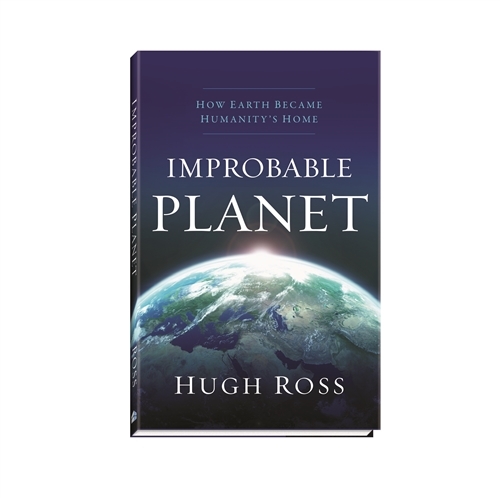Michael J. Behe's Blog, page 584
March 7, 2017
Cod gene puzzle: At least no one is claiming it is “junk DNA”

large codfish/Sissel Jentoft, UiO
From ScienceDaily:
Researchers at the University of Oslo (UiO) keep discovering surprises in the Atlantic cod genome. The most recent study has revealed an unusual amount of short and identical DNA sequences, which might give cod an evolutionary advantage.
Or else it is something the cod could live with or else it makes no difference at present. If we don’t have any very definite information, why talk about “evolutionary advantage” at all?
Interesting:
“We have already found a fish species that has even more tandem repeats than cod, namely the related haddock. Both cod (Latin name: Gadus morhua) and haddock (Melanogrammus aeglefinus) are members of the cod family (Gadidae). This may indicate that the whole group has an increased proportion of such repetitions,” adds Nederbragt. Paper. (public access) – Ole K. Tørresen, Bastiaan Star, Sissel Jentoft, William B. Reinar, Harald Grove, Jason R. Miller, Brian P. Walenz, James Knight, Jenny M. Ekholm, Paul Peluso, Rolf B. Edvardsen, Ave Tooming-Klunderud, Morten Skage, Sigbjørn Lien, Kjetill S. Jakobsen, Alexander J. Nederbragt. An improved genome assembly uncovers prolific tandem repeats in Atlantic cod. BMC Genomics, 2017; 18 (1) DOI: 10.1186/s12864-016-3448-x [plus 2 more] More.
The good thing is: If we don’t hear so much now about “junk DNA” (a presumed vast library of Darwinian detritus) we can more easily clarify how we would determine “evolutionary advantage.”
See also: Junk RNA helps embryos sort themselves out
Follow UD News at Twitter!
Copyright © 2017 Uncommon Descent . This Feed is for personal non-commercial use only. If you are not reading this material in your news aggregator, the site you are looking at is guilty of copyright infringement UNLESS EXPLICIT PERMISSION OTHERWISE HAS BEEN GIVEN. Please contact legal@uncommondescent.com so we can take legal action immediately.
Plugin by Taragana
Darwin’s Doubt Webinar with Steve Meyer 6:00 pm London time
Steve Meyer is the author of Darwin’s Doubt. Your time here.
To join, go here.
Copyright © 2017 Uncommon Descent . This Feed is for personal non-commercial use only. If you are not reading this material in your news aggregator, the site you are looking at is guilty of copyright infringement UNLESS EXPLICIT PERMISSION OTHERWISE HAS BEEN GIVEN. Please contact legal@uncommondescent.com so we can take legal action immediately.
Plugin by Taragana
English philosopher Roger Scruton battles the “humans are not special” folk
Almost all people believe that it is a crime to kill an innocent human, but not to kill an innocent tapeworm. And almost all people regard tapeworms as incapable of innocence in any case — not because they are always guilty, but because the distinction between innocent and guilty does not apply to them. They are the wrong kind of thing.
We, however, are the right kind of thing. So what kind is that? Do any other beings, animal or otherwise, belong to it? And what follows? These questions lie at the center of philosophical inquiry today, as they have since the ancient Greeks. In a thousand ways we distinguish people from the rest of nature, and build our life accordingly. We believe that people have rights, that they are sovereign over their lives, and that those who live by enslaving or abusing others are denying their own humanity. Surely there is a foundation for those beliefs, just as there is a foundation for all the moral, legal, artistic and spiritual traditions that take the distinctiveness of human life as their starting point. More.
The wisdom from “science” today is that the foundation of all that stuff is evolutionary psychology in a world where we did not evolve so as to perceive reality but did evolve so as to need coercion. Which is why we evolved to pay taxes to support all that.
No surprise that, as Michael Cook notes at MercatorNet:
The comments ran about 100:1 against Scruton and human exceptionalism: “my dog is much smarter and kinder than most people I know … People who look for differences between humans and non-humans remind me of the racists who look for differences between blacks and whites … The only thing special about human beings is our stunning arrogance and self-importance … Grow up. Get over it … Anyone who has lived with a dog knows that the other animals are just like us” and so on. More.
The question of whether humans matter much compared to tapeworms is likely to balloon in the 21st century. The Cool is backing the tapeworm.
See also: Nearly 50% Americans now think humans are not special
Roger Scruton helps Richard Dawkins’ “meme” find its way to the wastebasket
and
Roger Scruton: Missing the main problem with evolutionary psychology
and
Neuroscience: We are told: Brains have owners Yer darn tootin’ big data will not produce total understanding. What it will produce is generations of neuroscientists who think they have discovered things they have only imagined.
Follow UD News at Twitter!
Copyright © 2017 Uncommon Descent . This Feed is for personal non-commercial use only. If you are not reading this material in your news aggregator, the site you are looking at is guilty of copyright infringement UNLESS EXPLICIT PERMISSION OTHERWISE HAS BEEN GIVEN. Please contact legal@uncommondescent.com so we can take legal action immediately.
Plugin by Taragana
Blinkers Award goes to… Tom Nichols at Scientific American! On why Americans “hate science”
To him it’s all real simple:
It happens because some people reject expert information when it goes against their personal values
…
For its part, the American public is in the grip of a sullen, almost paranoid, narcissism about science and experts. This is not a function of education; the anti-vaccine movement, for example, is actually concentrated among parents with more education than their poorer counterparts. Indeed, ignorance has become hip, with some Americans now wearing their rejection of expert advice as a badge of cultural sophistication. (Consider the number of otherwise intelligent people who advocate consuming raw milk, for example, against the advice of a horrified medical community.)
Instead, the public rejection of science is an extension of our politics, which in turn have become an expression of our constant outrage about everything that offends our deepest beliefs about ourselves. As social scientist David Dunning has put it: “Some of our most stubborn misbeliefs arise not from primitive childlike intuitions or careless category errors, but from the very values and philosophies that define who we are as individuals.” When those misbeliefs are challenged, laypeople take it not as correction but as a direct attack on their identity. More.
Nichols needs to get out more. The public is becoming well aware of the currently unfixed peer review mess. And of the huge number of science fads inflicted on us, often via public policy, that turned out to be poorly sourced: See, for example, the skinny on salt, veggie oil,, skim milk, whole foods. Nutrition science is nearly baseless but it rules.
Health science is the way most people interact with science and in many areas, it is running neck and neck with the office rumor mill for credibility. Today, we should believe what makes sense to us and nothing more. Naturally, one would like things to be better but wishing doesn’t make it so.
Incidentally, who does Scientific American think its audience is? Smug folk who congratulate themselves to their superiority to the Great Unwashed who, thanks to the internet, are finally starting to put it all together… ?
* Blinkers Award? Oscars, without the envelope goofups
Note: “Tom Nichols teaches at the Naval War College and the Harvard Extension School. He is the author of “The Death of Expertise” (Oxford, 2017). The views expressed are his own.”
See also: Peer review “unscientific”: Tough words from editor of Nature
Follow UD News at Twitter!
Copyright © 2017 Uncommon Descent . This Feed is for personal non-commercial use only. If you are not reading this material in your news aggregator, the site you are looking at is guilty of copyright infringement UNLESS EXPLICIT PERMISSION OTHERWISE HAS BEEN GIVEN. Please contact legal@uncommondescent.com so we can take legal action immediately.
Plugin by Taragana
Neuroscience: We are told: Brains have owners
 From Ed Yong at the Atlantic:
From Ed Yong at the Atlantic:
Five neuroscientists argue that fancy new technologies have led the field astray.
John Krakaeur, a neuroscientist at Johns Hopkins Hospital, has been asked to BRAIN Initiative meetings before, and describes it like “Maleficent being invited to Sleeping Beauty’s birthday.” That’s because he and four like-minded friends have become increasingly disenchanted by their colleagues’ obsession with their toys. And in a new paper that’s part philosophical treatise and part shot across the bow, they argue that this technological fetish is leading the field astray. “People think technology + big data + machine learning = science,” says Krakauer. “And it’s not.”
He and his fellow curmudgeons argue that brains are special because of the behavior they create-everything from a predator’s pounce to a baby’s cry. But the study of such behavior is being de-prioritized, or studied “almost as an afterthought.” Instead, neuroscientists have been focusing on using their new tools to study individual neurons, or networks of neurons.
According to Krakauer, the unspoken assumption is that if we collect enough data about the parts, the workings of the whole will become clear. If we fully understand the molecules that dance across a synapse, or the electrical pulses that zoom along a neuron, or the web of connections formed by many neurons, we will eventually solve the mysteries of learning, memory, emotion, and more. “The fallacy is that more of the same kind of work in the infinitely postponed future will transform into knowing why that mother’s crying or why I’m feeling this way,” says Krakauer. And, as he and his colleagues argue, it will not. More.
Yer darn tootin’ it will not. What it will produce is generations of neuroscientists who think they have discovered things they have only imagined. And, doubtless, public policies to match.
We’ve been here before. One would have thought a quick trip through the history of eugenics and Freudian psychiatry would be useful. These too were science once.
But who do they think brains’ owners are? Entities that did not evolve so as to understand reality?
See also: What great physicists have said about immateriality and consciousness
and
Would we give up naturalism to solve the hard problem of consciousness?
Follow UD News at Twitter!
Copyright © 2017 Uncommon Descent . This Feed is for personal non-commercial use only. If you are not reading this material in your news aggregator, the site you are looking at is guilty of copyright infringement UNLESS EXPLICIT PERMISSION OTHERWISE HAS BEEN GIVEN. Please contact legal@uncommondescent.com so we can take legal action immediately.
Plugin by Taragana
March 6, 2017
Is dark matter all just a big mistake?

Hubble image captures what dark matter is supposed to be.
Asks Anil Ananthaswamy at Nautilus:
For his theory of emergent gravity, Verlinde takes the bold leap that the entropy of spacetime has an additional component that scales with volume. His thinking is that our universe, which approximates a spatiotemporal geometry called de Sitter space, is expanding at an accelerated rate, and so has a cosmological horizon—a distance beyond which we cannot see, because galaxies are receding faster than their light can reach us. Such a horizon is very similar to the boundary of a black hole and, by Bekenstein’s and Hawking’s arguments, implies an entropy. This entropy must be counted in addition to the entropy that physicists already ascribe to spacetime, and—crucially, according to Verlinde—it is not localized at the horizon. “The entropy that we normally associate with the horizon should be thought of as entropy that is distributed throughout the de Sitter space,” he says.
To justify his assumptions about entropy, Verlinde appeals to the nature of the spacetime microstructure. The microstructure is highly patterned, so that its parts are mutually correlated. Normally physicists assume that these correlations extend over only very short distances; the properties of two nearby points are very similar, while the properties of two distant points are unrelated. This patterning leads to an area scaling law for entropy. But in de Sitter space, Verlinde argues that the microstructure also has correlations that span large distances. Two distant points may be very similar. Such a patterning implies a volume scaling law.
Sprinkling entropy throughout the volume is tantamount to adding energy to the vacuum of spacetime and raising its temperature. “That energy is dark energy,” says Verlinde. And just like that, the problem of dark energy goes away.More.
These are interesting speculations, clouds in our coffee. But one has the haunting sense that current cosmology is in worse shape than they imply.
See also: Dark matter: Skeptics wanted
Anti-dark energy theories are burnt toast?
and
How do dark energy and dark matter relate to ID?
Follow UD News at Twitter!
Copyright © 2017 Uncommon Descent . This Feed is for personal non-commercial use only. If you are not reading this material in your news aggregator, the site you are looking at is guilty of copyright infringement UNLESS EXPLICIT PERMISSION OTHERWISE HAS BEEN GIVEN. Please contact legal@uncommondescent.com so we can take legal action immediately.
Plugin by Taragana
Evidence suggests that there were no separate early human lineages?
From Charles Q. Quoi at LiveScience:
Fossils unearthed in China appeared to be strange patchworks of extinct and modern human lineages, with the large brains of modern humans; the low, broad skulls of earlier humans; and the inner ears of Neanderthals, a new study reported.
These new fossils suggest that far-flung groups of ancient humans were more genetically linked across Eurasia than often previously thought, researchers in the new study said.
“I don’t like to think of these fossils as those of hybrids,” said study co-author Erik Trinkaus, an anthropologist at Washington University in St. Louis. “Hybridization implies that all of these groups were separate and discrete, only occasionally interacting. What these fossils show is that these groups were basically not separate. The idea that there were separate lineages in different parts of the world is increasingly contradicted by the evidence we are unearthing.” More.
See also: Do extinct Neanderthals control human gene expression? We have hardly begun to clear away the nonsense produced by previous generations of Darwinian thinking, upended by genetic studies. But the things we really learn might be quite valuable.
Follow UD News at Twitter!
Copyright © 2017 Uncommon Descent . This Feed is for personal non-commercial use only. If you are not reading this material in your news aggregator, the site you are looking at is guilty of copyright infringement UNLESS EXPLICIT PERMISSION OTHERWISE HAS BEEN GIVEN. Please contact legal@uncommondescent.com so we can take legal action immediately.
Plugin by Taragana
Can information such as movies be stuffed into DNA?
Well, there are some limitations: From John Timmer at Ars Technica:
Nothing about DNA is 100 percent accurate or even as close to the accuracy we’ve come to expect from our electronic bit storage media. Simply synthesizing DNA of a desired sequence will sometimes result in an error, as will amplifying it or decoding it again. And some specific sequences are especially error prone, like long runs of a single base (like TTTTTTTTTT) or stretches that are a mix of Gs and Cs. So any encoding method has to be robust to these issues.
Fortunately, we’ve already developed encoding algorithms that stand up to data loss. The authors went with Fountain codes, which allow packet-based data to be transmitted over networks where some of the packets get lost. Fountain encoded data is minimally redundant, in that it doesn’t hold duplicates of all the original data. Still, it allows the original message to be reconstructed even if some fraction of the packets are lost. The more packets you send, the easier it becomes to reconstruct the original data.
So the authors devised a system in which data is fountain encoded, creating lots of small packets. These packets are then encoded as DNA sequences. An algorithm then scans the results and eliminates any DNA sequences that are going to cause problems, like ones with a long run of As. Since you can always make more packets, this is repeated until there’s enough DNA sequences to give you the sort of robustness you’d want.More.
It was all just an accident that took off, see…
See also: Discovery of 7 times higher complexity of protein folding!
Follow UD News at Twitter!
Copyright © 2017 Uncommon Descent . This Feed is for personal non-commercial use only. If you are not reading this material in your news aggregator, the site you are looking at is guilty of copyright infringement UNLESS EXPLICIT PERMISSION OTHERWISE HAS BEEN GIVEN. Please contact legal@uncommondescent.com so we can take legal action immediately.
Plugin by Taragana
Habitable zone much smaller than the hype-able zone?
 From Hugh Ross, author of Improbable Planet, at the Reason to Believe:
From Hugh Ross, author of Improbable Planet, at the Reason to Believe:
For plants, animals, and advanced life to possibly exist, the liquid water and ultraviolet habitable zones must sustain their region of overlap for at least a few billion years. This longevity requirement creates a problem for all stars more massive than the Sun. Such stars burn up much faster than the Sun and their luminosities change much more radically than does the Sun’s. The faster and more dramatic burn-up histories of stars more massive than the Sun eliminates the planets orbiting such stars from possibly possessing plants, animals, or advanced life.
As noted earlier, for a planet to remain habitable it must avoid at least five different kinds of dangerous ultraviolet sources beyond its host star. As I describe in some detail in Improbable Planet, one of the more remarkable and very improbable features of our planet Earth is that it has indeed avoided sterilization from these sources.More.
But the hype-able zone is what gets the pop science media going and generates a budget, so… The main thing is, be the first on the block to know the facts.
See also: Astronomy text that privileges fine-tuning over flap doodle?
Follow UD News at Twitter!
Copyright © 2017 Uncommon Descent . This Feed is for personal non-commercial use only. If you are not reading this material in your news aggregator, the site you are looking at is guilty of copyright infringement UNLESS EXPLICIT PERMISSION OTHERWISE HAS BEEN GIVEN. Please contact legal@uncommondescent.com so we can take legal action immediately.
Plugin by Taragana
Science philosopher Massimo Pigliucci on his distance from the official “skeptical” movement
From 2015, but curiously relevant, at his blog Scientia Salon:
The Harris-Chomsky exchange, in my mind, summarizes a lot of what I find unpleasant about SAM (skeptic and atheist movements): a community who worships celebrities who are often intellectual dilettantes, or at the very least have a tendency to talk about things of which they manifestly know very little; an ugly undertone of in-your-face confrontation and I’m-smarter-than-you-because-I-agree-with [insert your favorite New Atheist or equivalent]; loud proclamations about following reason and evidence wherever they may lead, accompanied by a degree of groupthink and unwillingness to change one’s mind that is trumped only by religious fundamentalists; and, lately, a willingness to engage in public shaming and other vicious social networking practices any time someone says something that doesn’t fit our own opinions, all the while of course claiming to protect “free speech” at all costs.
Let me give you some examples and name some names of big boys who can take the criticism and who will keep doing what they have been doing regardless of what I write anyway. More.
 By all means, pull up a chair and tell us about it. We’ve heard plenty of and from those folk.
By all means, pull up a chair and tell us about it. We’ve heard plenty of and from those folk.
But it does mean that I see the future of SAM differently from some others: we have moved from the fringe position of the early days (say, when Skeptical Inquirer was called The Zetetic, and Madalyn Murray O’Hair was busy establishing the very same culture of in-your-faceness that her organization has almost unfailingly maintained since) to the mainstream (from the publication of the early New Atheist books until now, and likely into the proximate future).

Where to next, then? Toward a true integration and a dialogue (as opposed to a shouting match) with the rest of society, when we will not need special organizations and dedicated meetings, because secularism, skepticism, and political progressivism (including feminism) will be part of the normal cultural landscape, embedded by default in ongoing discussions on how to make this a better world. That’s where my target audience is now: I’d rather have a productive conversation with an intelligent Christian than a frustrating one with an obtuse atheist, and believe me, there is plenty of both out there.
[image error]
You know, it sounds like Pigliucci is growing up and wants to converse with adults. Lots to talk about.
See also: Massimo Pigliucci on string theorists vs. “Popperazi”
Massimo Pigliucci: Platonic view of evolution is just SO wrong
and
Biologist and philosopher Pigliucci won’t renew membership in new atheists?
Follow UD News at Twitter!
Copyright © 2017 Uncommon Descent . This Feed is for personal non-commercial use only. If you are not reading this material in your news aggregator, the site you are looking at is guilty of copyright infringement UNLESS EXPLICIT PERMISSION OTHERWISE HAS BEEN GIVEN. Please contact legal@uncommondescent.com so we can take legal action immediately.
Plugin by Taragana
Michael J. Behe's Blog
- Michael J. Behe's profile
- 219 followers



